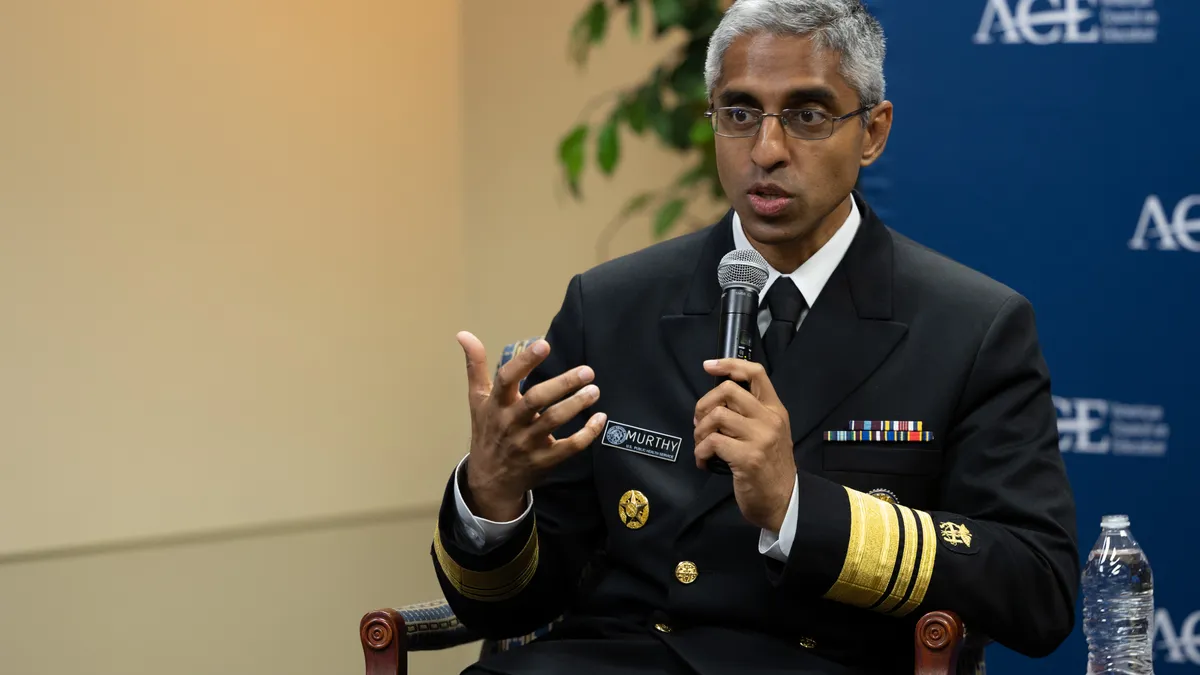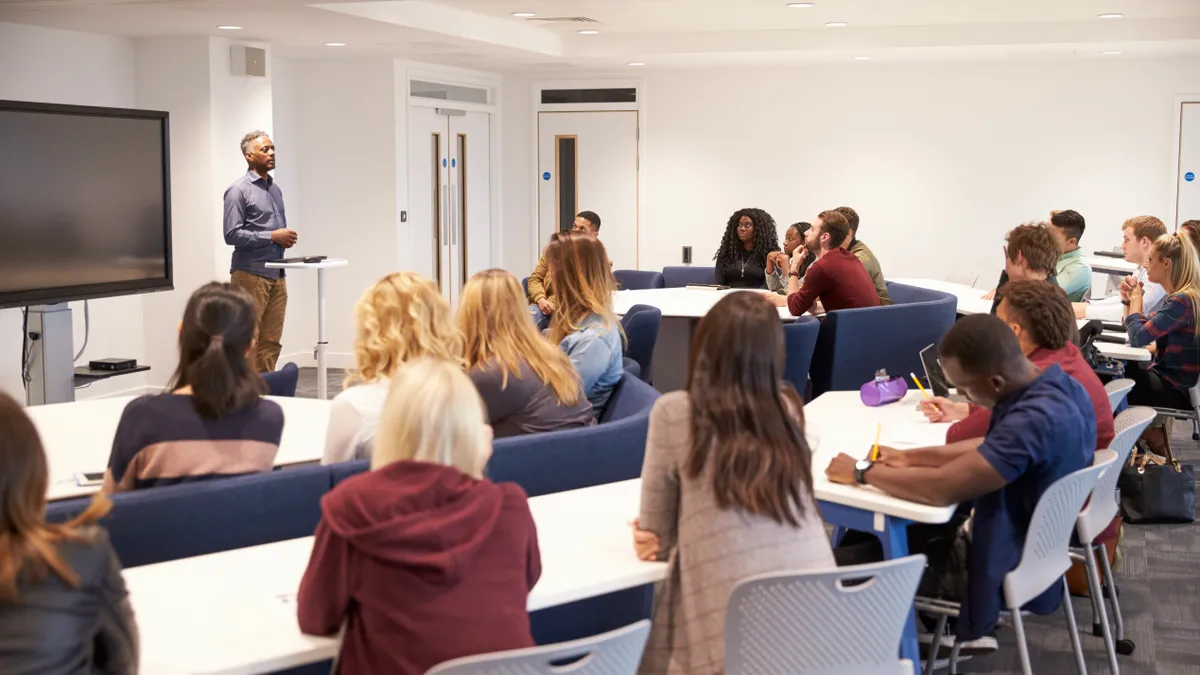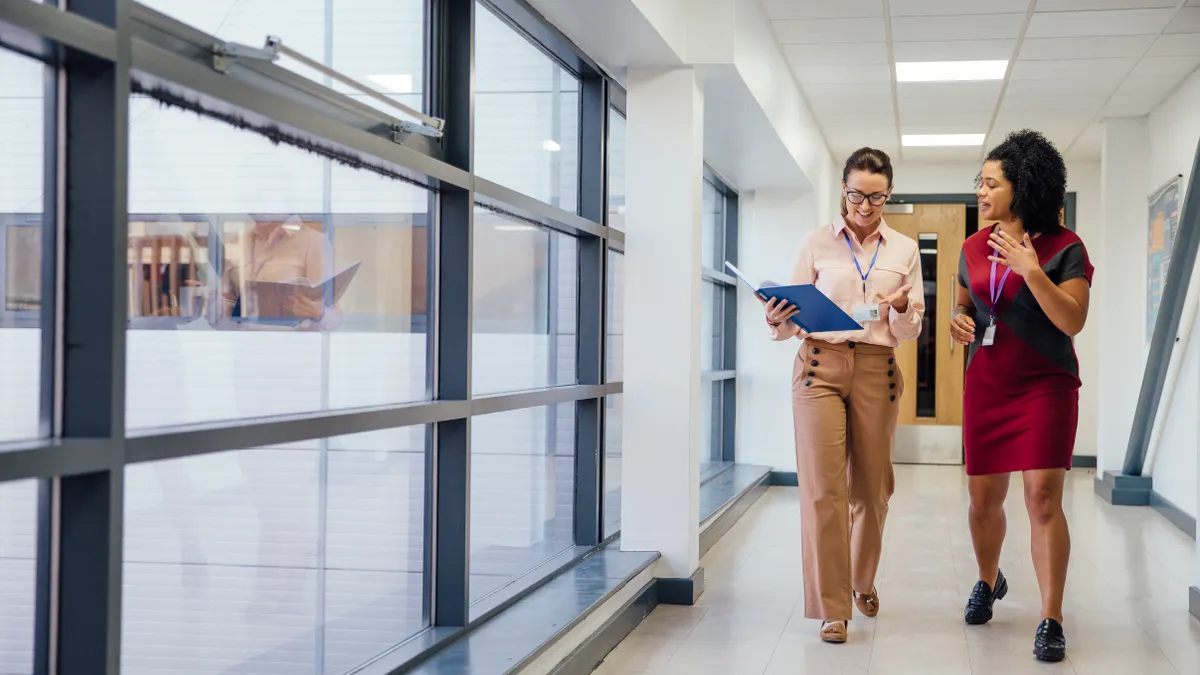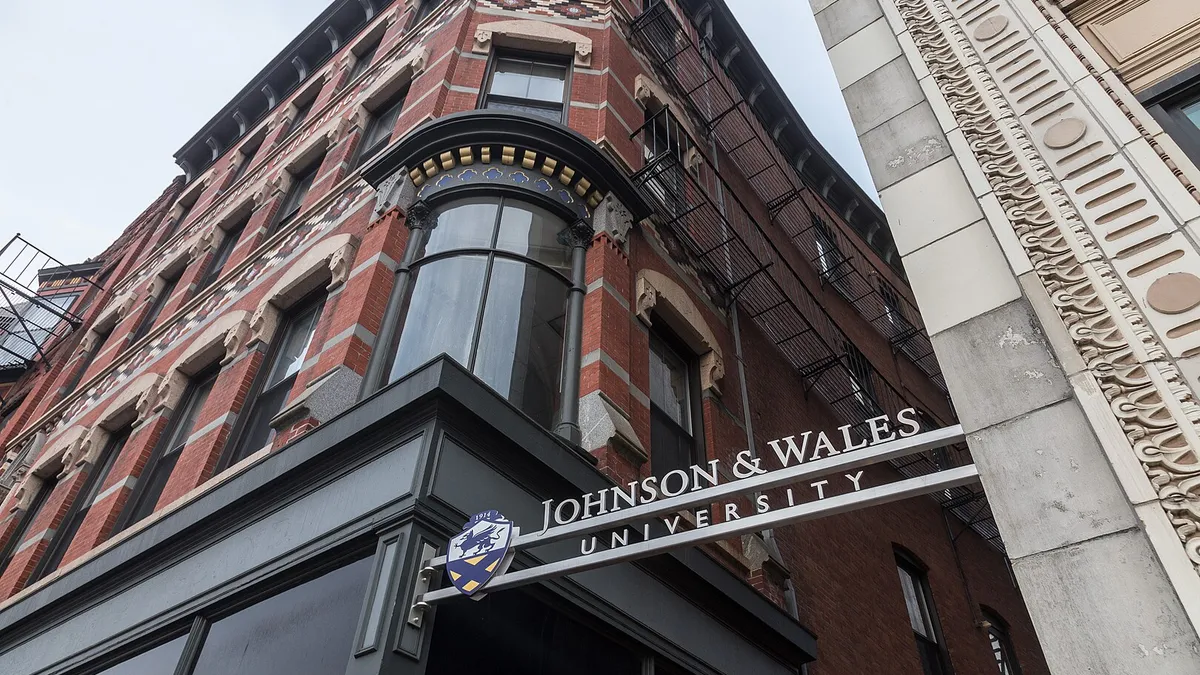Zainab Okolo is a strategy officer and Jamie Merisotis is president and CEO at Lumina Foundation.
Okolo is a licensed family therapist who used her research and work in mental health to set the stage for a conversation between Merisotis and U.S. Surgeon General Vivek Murthy at an Aug. 30 event that was sponsored by the foundation and hosted by the American Council on Education in Washington, D.C.
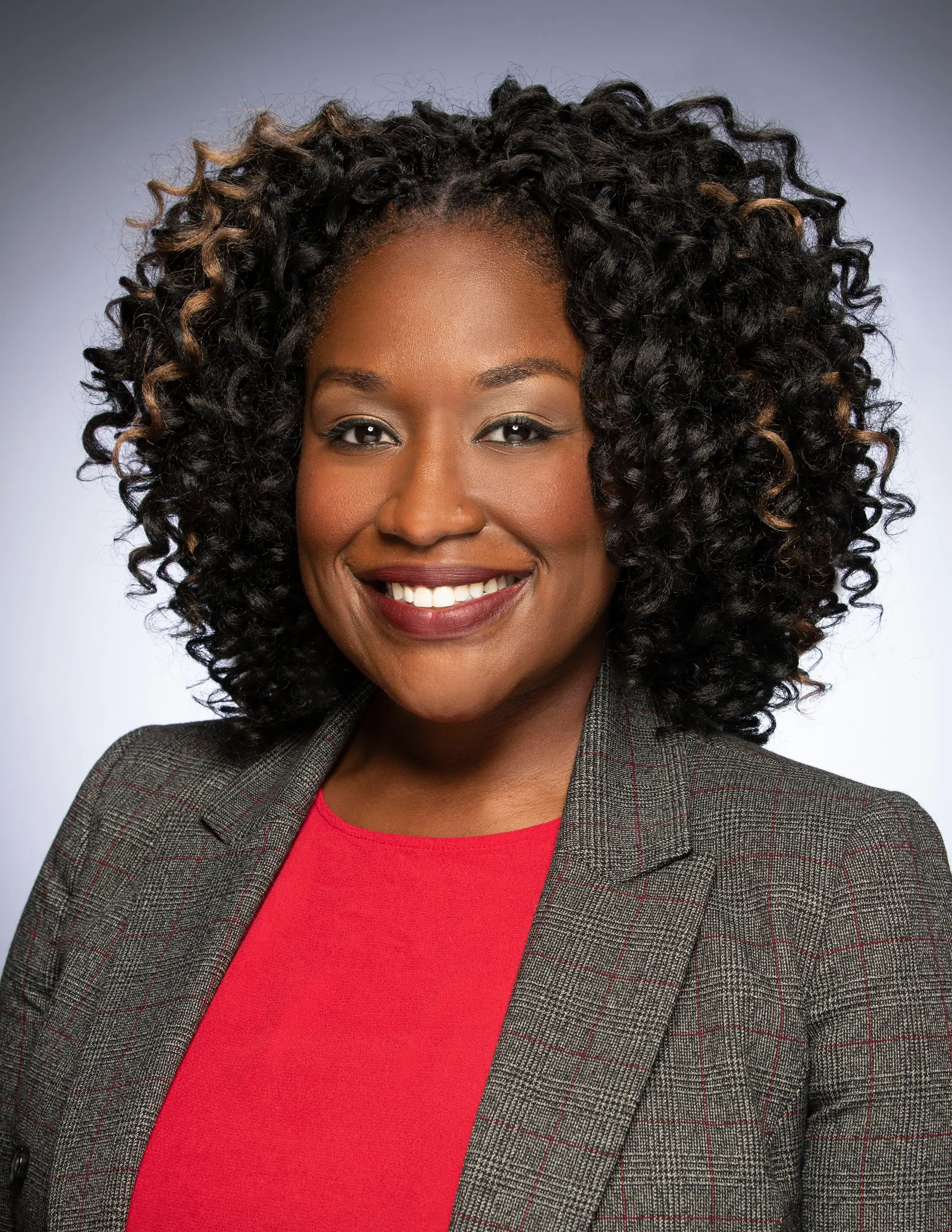
We’re having a moment in mental health, and we need to use it to challenge, push for sustainable funding, focus on preventative measures and end the stigma of mental illness.
A recent conversation with U.S. Surgeon General Vivek Murthy gave us a glimpse into what’s at stake.
“There’s a crack in the door,” Murthy said recently at the American Council on Education Mental Health in Higher Education Roundtable. “We need to really blow that door open in terms of enabling the kind of conversations to happen about mental health that happen all the time about physical health … We have to find ways to model what it’s like to talk about our mental health, to help people understand that mental health is health. It’s part of our health — no less important than our physical health.”
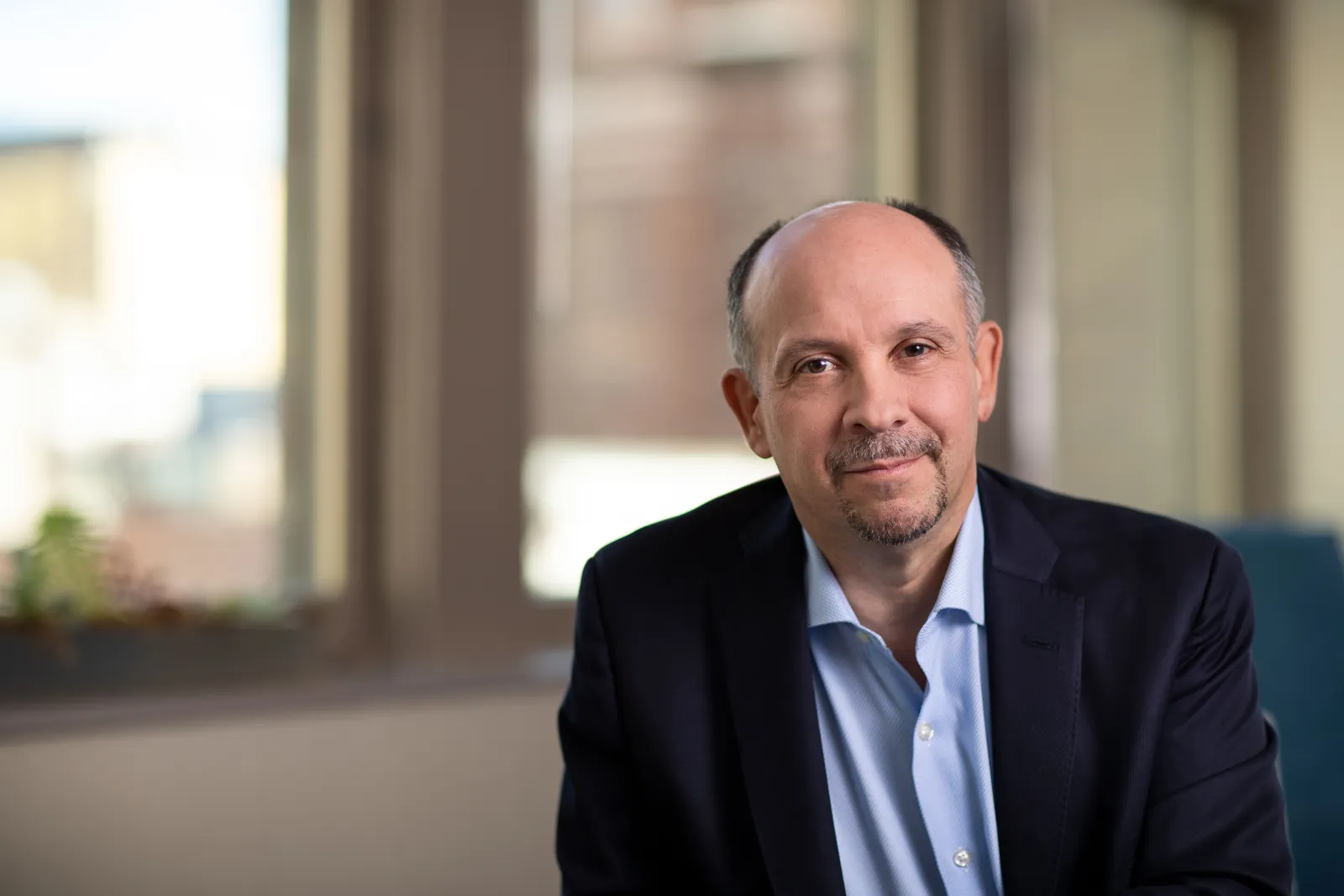
Murthy said good mental health is not a side issue. It’s foundational to the well-being of our children and, well, all of us. Lumina Foundation has supported studies that reflect the urgency.
A 2022 Lumina/Gallup State of Higher Education poll found that 71% of associate and bachelor’s degree students considering leaving college indicated that stress was the reason.
Not Covid. Not costs. Stress.
That’s a more than 30 percentage point increase since the last report in 2020. It’s the No. 1 reason students cite when they are debating whether to stop out. This alone should be motivation enough to act now. This finding also helps us better understand and account for the nearly 1.3 million students who have left college without a degree since the start of the pandemic.
At Lumina, we want to make sure all people — regardless of race, ethnicity, gender, sexual identity, or financial means — have better futures through education and training after high school. It’s this equity-first mission that guides our thinking on the topic of mental health in higher education.
Anxiety, depression, self-harm and suicide are happening at higher rates than ever.
College students are struggling through formative years at a time of political polarization, civil unrest, racial reckoning, mass shootings and climate disasters. Any one of these would be enough to trigger anxiety and depression. Combined, the complexities of trauma have an explosive effect.
“Young people all across America, they tell me when I meet with them and talk to them that they look at the specter of violence and racism,” Murthy said. “They look at the threat of climate change. They look at the vitriol and polarization we have in society right now and legitimately ask the question: ‘Is a future really brighter than the past?’”
The temptation to look back a generation before social media and say young people are more tenderhearted today or are overreacting is shortsighted and deadly. Loneliness, brought on by a lack of meaningful connections, is driving depression on college campuses. No amount of grit and determination can overcome deep-seated trauma.
“What has happened, I worry, is that we have substituted lower-quality online relationships for higher-quality offline relationships,” Murthy said. “We are built and wired for human connection.”
All this calls for greater understanding.
Murthy said we must use the moment to knock down barriers such as a lack of insurance and make care available where it’s needed most, including in neighborhood schools and college campuses. And we need to act fast.
He calls for “modeling” conversation about mental health. We must encourage people to talk about their mental health, just as they would discuss their physical health. We must have those conversations at work, on college campuses, and in our homes.
“We don’t have to be experts to do this. We can start by fostering those human connections,” the surgeon general said. “We can start by doing what the Beyond Differences program is doing now in schools across the country: recruiting and engaging young people and helping foster those connections, recognizing that other people are lonely in schools and on college campuses.”
The Beyond Differences program has students going out as ambassadors to try to reduce loneliness in their communities.
While the mental health crisis shows a shockingly steep and steady growth since the onset of COVID-19, the pandemic may also unleash the mountain of resources.
It has forced us to look at access to care differently. We found new ways — generally through technology — to get physical and mental health checks. We took healthcare to people rather than people coming to healthcare.
“One of the silver linings of COVID-19 is it forced us to use technology to deliver both physical and mental health care much more readily than we were doing before,” Murthy told university leaders. “But we can’t allow ourselves to regress to where things were back in 2019. We have to continue to use technology to make mental health care and counseling available to people. We’ve got to bring more and more counselors into our schools and universities,” he said.
We know our medical communities are not adequately diverse. Language barriers and cultural differences keep those living in the margins from getting the help they need.
This country tends to fund issues only once it reaches crisis mode, instead of providing sustained funding, Murthy said.
Preventative programs are cost-effective, and they work. But even the ones in place are not used as they should be, Murthy said. They require awareness campaigns, educational efforts, and funding. As we imagine a more inclusive and healthier higher education landscape, the future of our society rests in our ability and willingness to give students everything they need to experience the psychological safety it takes to learn, earn, and lead fulfilling lives.
“So, this is what we’re called to do right now,” Murthy said. “I think it’s eminently achievable because I’ve seen programs in communities all across America that are doing this for young people.”
We agree that today’s urgency of mental health may finally have met its moment. How we seize this opportunity will determine our trajectory as a nation.


